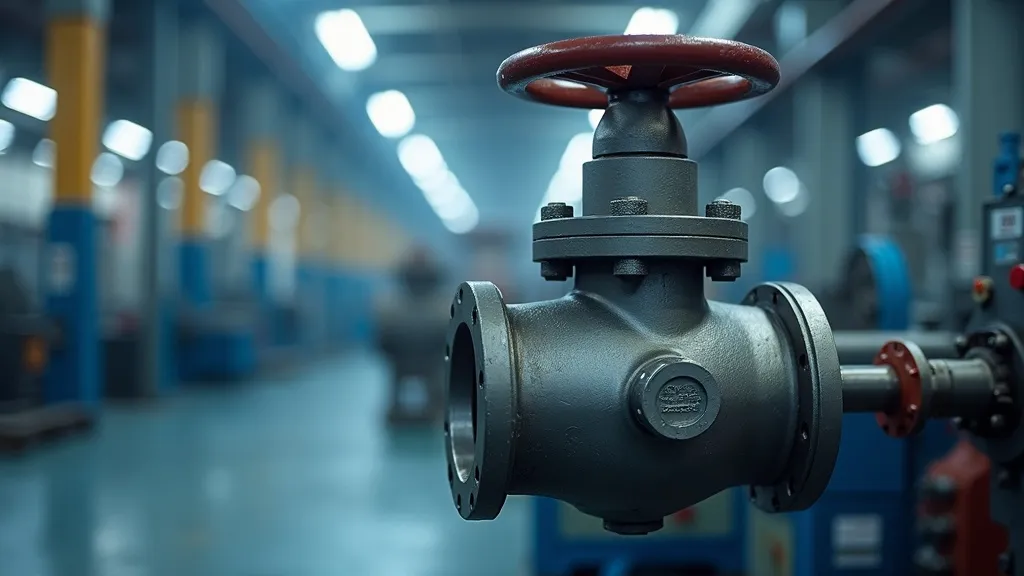Rexroth Valves play a pivotal role in industrial fluid control systems, renowned for their reliability and precision. These valves are integral to various applications, ranging from manufacturing to hydraulics, and are known for enhancing operational efficiency and ensuring safety. Understanding their functionality and application can significantly contribute to optimizing industrial processes.

In the realm of industrial fluid control, Rexroth Valves have emerged as a cornerstone of efficiency and precision. Known for their robust design and reliable performance, these valves are integral components in numerous applications, including manufacturing, hydraulics, and more. Their ability to modulate, direct, and control fluid flow is essential for maintaining operational safety and enhancing overall process efficiency. The pioneering technology behind Rexroth Valves not only streamlines operations but also significantly contributes to energy savings, making them a pivotal choice for industries aiming for sustainability without compromising on performance.
Specifically designed to handle critical operational roles, Rexroth Valves are utilized in systems where precision and reliability are paramount. Whether employed in complex hydraulic systems or automated manufacturing lines, these valves offer several advantages. The specific design features of Rexroth Valves play a crucial role in various applications, from controlling fluid flow in hydraulic systems to regulating pressure in pneumatic applications. Some of the key advantages include:
According to industry reports, the demand for Rexroth Valves is steadily increasing, driven by the industrial sector's continuous need for reliable fluid control solutions. Key industries benefiting from Rexroth Valves include automotive manufacturing, heavy machinery, and aerospace, each requiring different configurations and specifications tailored to their unique operational demands. In the automotive industry, for example, the precision of hydraulic valves is critical for systems like braking and steering, where safety and reliability cannot be compromised. Similarly, in aerospace applications, the ability to manage high-pressure systems efficiently while maintaining safety standards is vital.
In addition to traditional sectors, emerging industries such as renewable energy and robotics are beginning to harness the benefits of Rexroth Valves. For instance, wind energy systems require highly reliable fluid control solutions for turbine operations, where uninterrupted performance is essential. Robots, which are becoming increasingly integral to manufacturing and service sectors alike, also rely on Rexroth Valves for fluid-driven movements to ensure precise control and coordination.
Rexroth provides a broad catalog of valves, each tailored to specific industrial needs. These valves include directional control valves, pressure control valves, flow control valves, and proportional valves. Each type plays a different role, and understanding their specifications is crucial for selecting the appropriate valve for a given application.
As industries move towards automation and Industry 4.0, the integration of Rexroth Valves into modern control systems is becoming increasingly important. Advanced control systems utilize sensors and digital communication protocols to optimize the performance of hydraulic systems, enhancing efficiency and responsiveness.
Rexroth Valves are compatible with various automation technologies, including programmable logic controllers (PLCs) and industrial internet of things (IIoT) applications. Integration allows for real-time monitoring and adjustment of valve operations, which contributes to predictive maintenance practices. For example, when connected to a maintenance management system, alerts can be generated when flow rates or pressures deviate from established norms, allowing for preemptive interventions before failures occur.
The implementation of smart technologies also favors the use of Rexroth Valves in robotics. As robots require precise movement to function effectively and safely, fluid control becomes a critical factor that Rexroth Valves address directly. This integration supports a range of applications, from autonomous guided vehicles in warehouses to robotic arms in assembly lines.
Ensuring the reliability and longevity of Rexroth Valves hinges on regular maintenance and prompt troubleshooting. Understanding common issues and the corresponding maintenance tasks can significantly increase operational efficiency and minimize unexpected downtime.
The enduring evolution of Rexroth Valve technology is marked by continuous improvements and innovations. The drive toward smarter solutions has led to several noteworthy innovations:
The importance of Rexroth Valves in the industrial sector cannot be overstated. Their design not only aims for high performance but also addresses the evolving challenges faced in modern manufacturing and fluid management. Their continued evolution and integration into advanced systems highlight their indispensable role in supporting efficient and safe industrial operations. As technology progresses, these valves will likely incorporate more sophisticated features and functionality, further cementing their status as vital components in modern industry.
In conclusion, as industries demand greater efficiency and reliability, Rexroth Valves are poised to remain a leading choice among fluid control solutions. Their innovations are helping industries adapt to new challenges while consistently driving productivity improvements, safety enhancements, and sustainability efforts across various sectors.